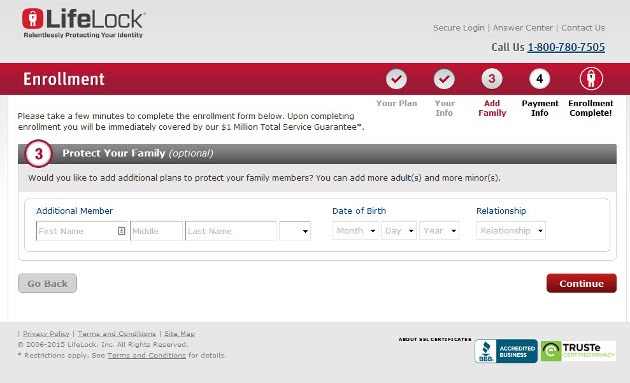LifeLock and Identity Guard are the leading companies in the identity theft protection industry. The companies have a high ratings on many platforms, suggesting their popularity and quality. Though they have similar products, they both have some differences that set them apart. Here is a comparison of LifeLockvs Identity Guard.
Similarities
They both offer identity theft protection services for individuals. The companies deal with everything from wallet theft to credit monitoring. The credit monitoring is offered based on the three major credit bureaus, which are Experian, Equifax and TransUnion. The companies both offer real time monitoring on your credit information and supply you with credit reports. They both have alert systems that are directed at informing you in the event that there is an incident that requires your immediate attention. They both have three basic payment plans and have a child identity theft protection service. Both companies can offer the child identity protection services as a separate package from the three main ones.
Differences
In the event of theft, both companies have a reimbursement policy that amounts to a million dollars. The only difference is that the Identity Guard reimbursement is an insurance guarantee while that of LifeLock is a service guarantee. That means that the Identity Guard reimbursement is given without condition. The LifeLock reimbursement is however given on condition that you prove that you had not been informed of any identity theft attempt.
The LifeLock plans are slightly pricier than those offered by Identity Guard. Even though, LifeLock offers a discounted promo code on all products.
LifeLock supplies you with credit reports on an annual basis while Identity Guard supplies them on a quarterly basis.
LifeLock does not offer data protection services whereas Identity Guard has an antivirus for data protection.
LifeLock monitors black market sales sites that deal with products of identity theft. However, Identity Guard on the other hand does not offer any site monitoring service.
LifeLock also offers protection against hacking through its file sharing network monitoring. Identity Guard on the other hand does not have any service that does that.
LifeLock’s plan includes a provision for sex offender registry reports for better Child protection. Included in LifeLock’s Child identity theft protection plan is also a service for credit monitoring. Identity Guard only monitors the information of the child.
Conclusion
While both plans are generally matched in service, they both have distinguishing plans and services that set them apart. Depending on how much you are willing to pay or the value of service you want, you can choose one or the other.

















